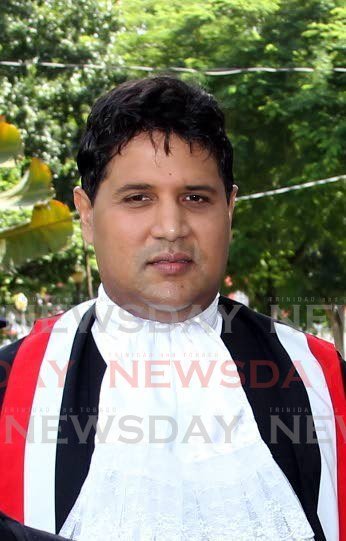Quarrel brewing over Court vacation

A PROPOSAL to permanently abolish the court’s long vacation and change the court year is being resisted by attorneys and some judges.
The proposal by the Judiciary is contained in an amendment to the Civil Proceedings Rules (CPR) and was made by the rules committee under section 78 of the Supreme Court of Judicature Act and is subject to a negative resolution of Parliament.
The change will see all civil cases being heard throughout the year, except for the Christmas and Easter breaks. The proposed rule change did not mention the Criminal Proceedings Rules, although the usual court vacation periods apply to all judges.
According to the proposed change in the rules, the court year will begin on October 1 and end on September 30. The year usually begins mid-September and runs to the end of July. The long vacation usually begins in early August and ends when the new term begins in mid-September.
The Judiciary’s proposal is to have three terms. The first term will begin on October 1 and end on December 21 for the appellate court and December 19 for the High Court. The second term will begin on January 11 for the Court of Appeal and January 3 for the High Court while the third term will begin on the Monday after Easter and will end on September 30.
The amendment also proposes to have the first court vacation period begin on December 22 to January 9 for the Appeal Court and December 20 to the first Monday after New Year’s Day for the High Court. The second court vacation period will begin on Good Friday and end on the Sunday after Easter Monday.
During the court vacation period, the court is closed and only emergency cases are heard by judges who are rostered to do so.
Last week, the Law Association alerted its membership to the proposal and asked for their views by May 21.
In its notice, the association said it had not been provided with the rationale for the proposal to permanently abolish the court long vacation.
On Tuesday, outspoken judge, Justice Frank Seepersad expressed his concerns with the proposal in an e-mail to all judges and the Chief Justice.
Seepersad said at a meeting of Civil judges, six of 14 judges did not agree that the long vacation should be abolished while the eight that did, wanted to be provided with clear criteria for the taking of annual vacation.
Seepersad said given the lack of unanimous support from the civil judges for the proposed long vacation abolition, he was surprised that the issue was put before the Law Association for consideration by its members.
He said judges agreed to all work through the long vacation this year because of the covid19 pandemic, but he was strenuously objecting to a proposed permanent abolition of the long vacation.
“Firstly, I am of the view that judges have a legitimate expectation that our six-week annual vacation entitlement is to be generally enjoyed during the long vacation.
“This arrangement is not always convenient for travel but it has been characterised by a measure of certainty which does not require any application process or the approval of the President,” he said.
Seepersad said in the absence of clear and accepted criteria on how vacation leave will be approved if the long vacation is abolished, he was of the view that the proposal amounted to a variation of the terms and conditions of judges’ employment.
“The proposed abolition also seems to disregard the fact that people with school-aged children usually travel or spend time with their families in August.”
Seepersad said the pandemic had reinforced how fundamental family life was to general well-being as a society. He said the Judiciary “should not take decisions which may disrupt the forging of enduring familial bonds.”
He also said attorneys used the long vacation period for administrative re-organisation of their practices and for rest and relaxation “which is necessary so as to ensure one’s mental and emotional health.’
He asked for another meeting to discuss the proposed abolition, warning that if a decision is made to move forward on the issue without further engagement, he will seek the advice of Queen’s Counsel and will pursue legal action if he is so advised.
Several attorneys have also spoken out on the issue. Many of them have taken to social media to voice their objections. Asking that their names not be used, they said they were vehemently against the abolition of the long vacation.
They said the long vacation was a time for them to try to relax, recharge, travel, and deal with their own backlog of clients’ cases.
Several of them had no objection to putting off the long vacation this year because of covid19 but said abolishing the six-week period was something that will gravely and significantly affect the mental health and family life of practitioners if made permanent.
While one attorney was not against it, he said he needed additional information on the proposal, while another, who practices in both the civil and criminal courts, said the long vacation period was their time to recharge and take family vacations since litigation attorneys work 24/7and all aspects of their personal life suffer.
“Give us our six weeks. Burn out is real... Mental health is important,” the attorney said. Many others said they understood the need to clear the backlog of cases, but said there were better ways to do it with more courts, more judges, the greater use of technology and actually enforcing the existing rules and applying sanctions for non-compliance.
Between terms, the courts are on vacation, and no trials or appeals are heard in the High Court, Court of Appeal, and Supreme Court.


Comments
"Quarrel brewing over Court vacation"